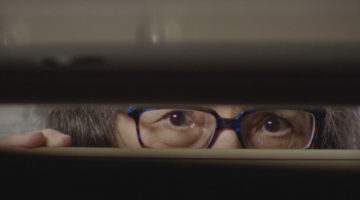Review: Gemma Bovery
A capricious intersection of art and life meet in Gemma Bovery, a voyeuristic and curious tale about storytelling and fate.
It’s all an initially wonderful bit of luck that a literary-obsessed baker named Martin residing in the Normandy countryside meets British couple Gemma and Charlie Bovery. Immediately his mind swirls, amazed the coincidence to one of his favourite stories, Madame Bovary. Soon he starts finding more common threads, especially as Gemma (Gemma Arterton) is every bit the stunning, precocious housewife living with Charlie (Jason Flemyng), a nice enough gent but surely not nice enough keep all of Gemma’s attention.
At least that’s what Martin suspects, and for much of the time, we watch through his eyes at awkward incidents where innocence could easily be misinterpreted for lust and sin. Not long after, our well-meaning if not snoopy baker/narrator starts to see that this coquette has even more similarities with her literary namesake, and fears that her story with end in the same tragic way.
One doesn’t necessarily need a lengthy background in the classic 1856 novel by Gustave Flaubert, though it helps, or the 1999 novel on which this film is indeed based. It’s a far more fascinating story that deals in allusions and motifs than it does characters. Gemma’s curiosities and transgressions are nothing the least bit evocative, nor is there much sympathy for her husband. Indeed, all of the emotion in this film that tries to balance humour, drama, and lust, arrives from watching Martin become obsessed with and concerned for Gemma.
Arterton does wonderfully inhabit this famed figure, and it seems sexual tension oozes in every scene she is in. Gemma Bovery becomes overly simplistic with outlying characters and conversations that serve no purpose, but at its core it still is a fascinating watch with a daring finale.
[star v=3]





